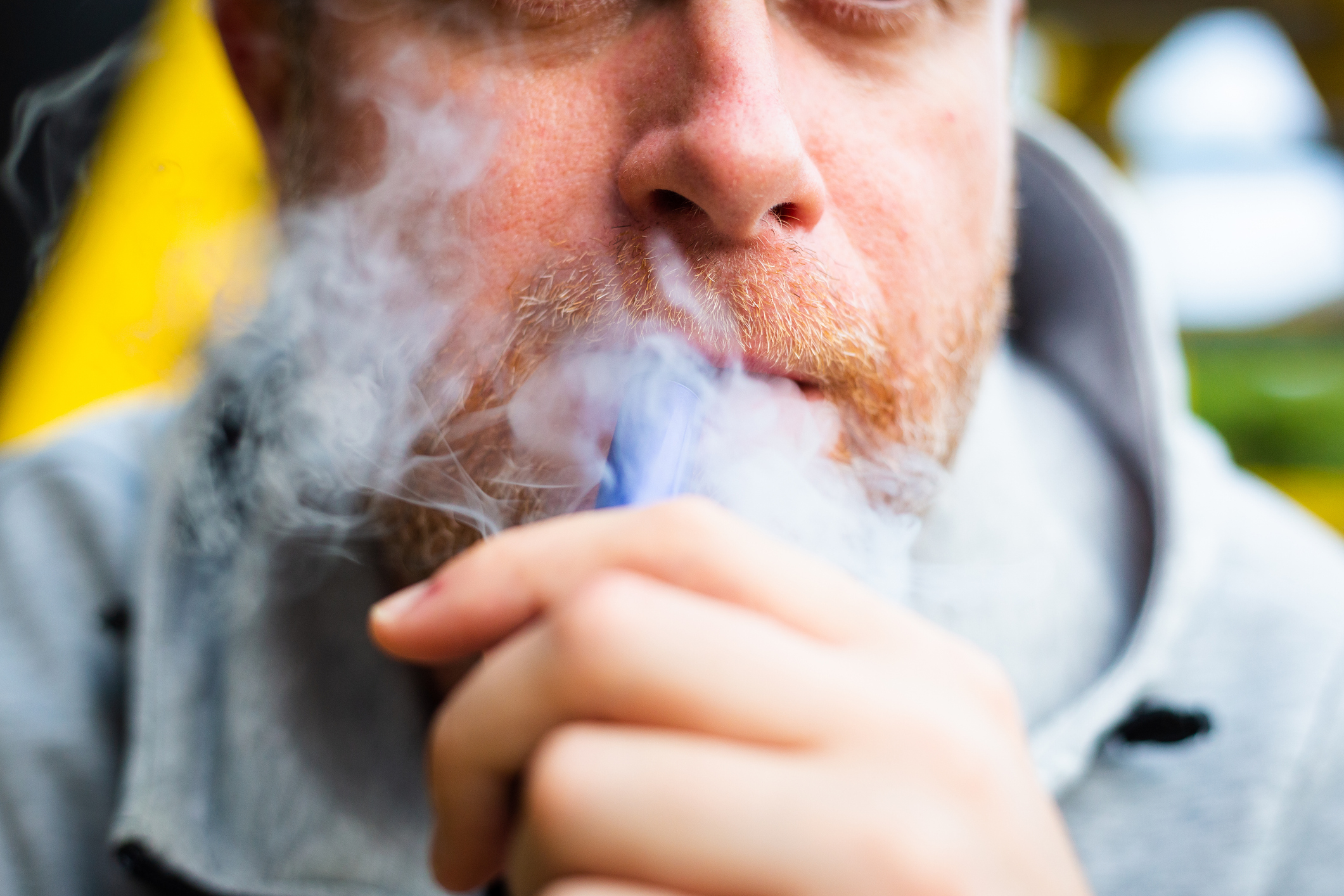On a daily basis, we often get questions about how different lifestyle choices can impact oral health, and one topic that’s been coming up more frequently is vaping. While vaping is usually marketed as a safer alternative to smoking, it’s important to understand its potential effects on the body, specifically your mouth and teeth.
What is Vaping?
Vaping involves inhaling and exhaling aerosol, often referred to as vapor, produced by an e-cigarette or similar device. Unlike traditional cigarettes, which burn tobacco to produce smoke, e-cigarettes use a battery-powered mechanism to heat a liquid (often called e-liquid or vape juice) that contains nicotine, flavorings, and other chemicals. This process creates an aerosol, commonly referred to as vapor, which the user inhales.
Vaping Cautions
While vaping is seen as the “better” or “less harmful” form of smoking, it is important to note that the effects of vaping have not yet been studied extensively. It is not advised to vape. Here are a few cautions to be aware of:
- Vaping can lead to nicotine addiction, similar to smoking traditional cigarettes.
- Lung health may be impacted. Some studies suggest that vaping can cause lung irritation and damage. Cases of severe lung illness related to vaping have been reported.
- Chemical exposure. Users are exposed to various chemicals, some of which can be harmful. Certain flavorings, for example, have been linked to respiratory issues.
- The appealing flavors and marketing of vaping products have led to increased use among teenagers, raising concerns about long-term health impacts and addiction.
- It may cause an inflammatory response in gum tissues.
- Cell damage, specifically in the mouth and throat.
How Vaping Affects Your Oral Health
Dry Mouth
One of the immediate effects of vaping is dry mouth. Many e-liquids contain propylene glycol, a substance that can reduce saliva production. Saliva is crucial because it helps wash away food particles and bacteria, protecting your teeth from decay and your gums from infection.
Increased Risk of Cavities
Without sufficient saliva, your mouth becomes a breeding ground for bacteria. This can lead to increased plaque formation and a higher risk of cavities. Additionally, some e-liquids contain sweeteners that can contribute to tooth decay.
Gum Disease
Vaping can also negatively impact your gums. Research suggests that vaping may cause inflammation in the gums, which is an early sign of gum disease. Gum disease, if left untreated, can lead to more serious issues like tooth loss.
Cell Damage
The chemicals in e-cigarette vapor can cause cellular damage in the mouth. A study from the American Journal of Physiology indicated that exposure to e-cigarette vapor can lead to damage in the cells lining the mouth and throat, potentially increasing the risk of infections and diseases.
Nicotine’s Effects
If your e-liquid contains nicotine, be aware that it’s not just addictive but also harmful to your oral health. Nicotine can reduce blood flow to the gums, which impairs healing and can exacerbate gum disease. It can also lead to teeth grinding (bruxism), which can wear down teeth over time.
Long-Term Concerns

The long-term effects of vaping on oral health are still being studied, but the preliminary data is concerning. Since vaping is relatively new compared to traditional smoking, we don’t yet have a complete picture of its impact over decades. However, what we know suggests it’s not as harmless as some believe.
Don’t Start Vaping
While vaping might be seen as less harmful than smoking traditional cigarettes, it’s far from risk-free, especially when it comes to your oral health. Dry mouth, increased risk of cavities, gum disease, and cellular damage are just some potential issues. As always, the best choice for your oral and overall health is to avoid smoking and vaping altogether. If you have concerns about vaping and your dental health, don’t hesitate to reach out to your dentist for personalized advice.

